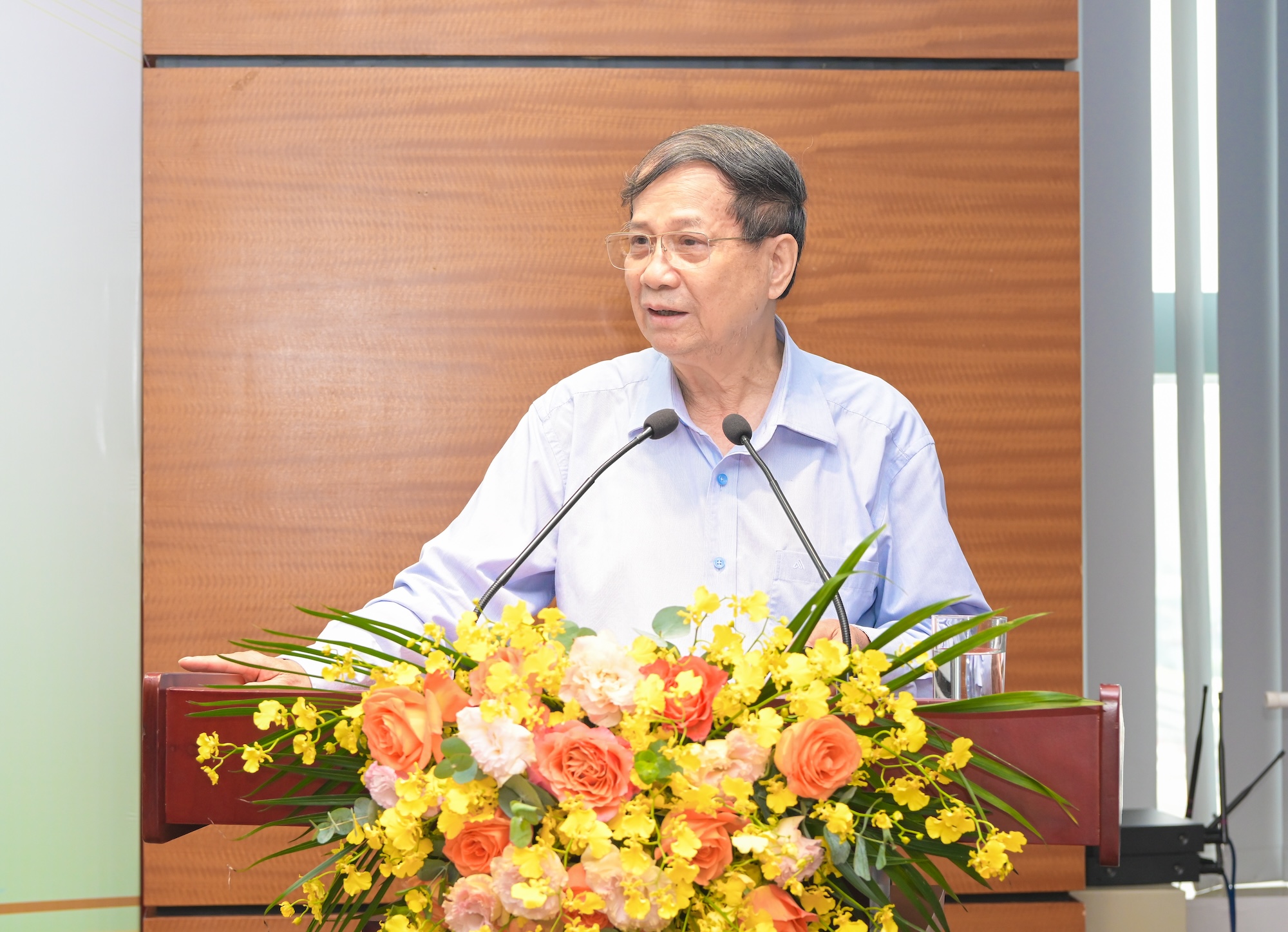At the 2025 Annual Oil and Gas and Energy Forum on 28/7, Dr. Ngo Tri Long, former Director of the Institute for Price and Market Research at the Ministry of Finance, highlighted Vietnam's growing energy transition investment needs and the current financial system's inability to adequately meet the scale, term, and risk-sharing requirements.
Long proposed establishing a National Energy Bank (NEB), a specialized energy bank. This financial institution would be a collaboration between the Vietnam National Oil and Gas Group (PVN) and major banks like BIDV, Agribank, and Vietcombank, under the patronage of the Ministry of Finance and the State Bank of Vietnam.
The NEB would focus on providing medium- and long-term credit (15-25 years) for renewable energy projects, energy storage, green hydrogen, and offshore wind power. It would raise capital through green and innovative financial instruments, issuing green bonds, and attracting international capital at preferential interest rates.
The government would participate by sharing risk through an energy investment risk guarantee fund. PVN would provide technical and technological guarantees, assist in evaluating new energy projects, and facilitate technology transfer.
 |
Dr. Ngo Tri Long speaking at the energy forum on 28/7. Photo: Minh Duc |
Dr. Ngo Tri Long speaking at the energy forum on 28/7. Photo: Minh Duc
According to Long, similar models have been successfully implemented globally. He cited examples such as KfW (Germany), a state-owned development bank that has financed over 80 billion EUR for clean energy projects in Europe with a financial leverage ratio of up to 1:5. The UK's Green Bank mobilized over 15 billion USD from the private sector in its first five years, primarily through green bonds and public-private partnerships. Indonesia's IFF, a partnership between the Indonesian government and the World Bank/Asian Development Bank, specializes in financing long-term energy infrastructure projects.
"The Vietnamese National Energy Bank model can learn from these institutions, but it needs to be localized, combining the state's coordinating role, PVN's technical capabilities, and market resources," Long said.
A World Bank report indicates Vietnam needs to invest over 368 billion USD, equivalent to 6.8% of its annual GDP, to achieve its 2050 net-zero emissions target. The energy sector alone accounts for over 135 billion USD of this amount.
However, Long cited Ministry of Finance data showing public investment in the energy sector from 2016-2023 only accounted for about 15-18% of total public investment (28-32 billion USD). This reveals a significant funding gap in the energy sector. Banks struggle to meet the capital requirements of new renewable energy projects due to a lack of specialized knowledge, loan term limitations (mostly under 10 years), and the absence of mechanisms to guarantee technology and foreign exchange risks.
Securing investment capital for the energy transition is a major challenge for investors. Nguyen Trung Khuong from PVN's Strategy Department explained that emerging sectors like offshore wind power, hydrogen production, green ammonia, and nuclear power development require substantial investment and have long payback periods.
"Mobilizing, arranging, and optimizing these capital sources in the context of competition and current financial regulations is an enormous challenge," he said.
To address these challenges, Nguyen Duc Hien, Deputy Head of the Central Strategy and Policy Department, suggested Vietnam needs mechanisms to attract private investment in energy transition projects, including public-private partnerships. He also emphasized the need for electricity market reforms, including pricing and trading mechanisms, and resolving existing issues from wholesale to retail electricity distribution.
Phuong Dung












